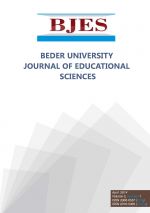
Education to info-freedom. Introduction to the issue
Abstract
The new media have become both constant elements of contemporary man’s everyday life and signs of civilization progress. Therefore, they have to play more and more important role in the processes of learning, school education and extracurricular education, the role, which signiicantly exceeds the meaning of didactic help known in these processes so far. Education cannot ignore the most important changes which take place in the surroundings of every man. For a few decades there have been attempts to familiarize multimedia in various conceptions and forms of media education but they do not bring satisfying pedagogical results because expansion of multimedia still lasts and it is accompanied by the crises of tradition, science (especially the arts) and values. I support stubborn working on eficient models of media (or rather multimedia) education, which takes into account speciic national cultures, multinational communities and religions, but in my article I concentrate only on the phenomenon of informational freedom, so called infofreedom, which is strongly connected with these new areas of pedagogy. In my opinion the problem of freedom offered by mobile, personal and almost omnipresent new media, their producers and political decision makers goes beyond purely pedagogical aspects. It refers (even if does not now it will in the future) to thinking and behaviour of every man and that is why it should be treated as a starting
point for relection concerning their contemporary mental and material condition. In spite of the excess of information, which is felt by multimedia users, and a huge potential of activity, which is offered to them (so called consumers changing into prosumers) by so called “participatory culture”, I accept Lawrence Lessig’s critical assumption that in this case we do not deal with freedom changing into arbitrariness, it is rather „freedom through control”. Such an attitude has signiicant consequences for the didactic and educational processes. I explain this apparent opposition by commenting heated quarrels of cyber-libertarians, announcing total freedom of the Internet, and cyber-paternalists, proving that in network communication there is more invigilation and control than before this electronic metamedium appeared. I prove that the dominating direction of media education is indicated by communicational practice, which shows that the new media, more than traditional ones, limit freedom of an individual and they broaden the range and possibility ofauthority inluence (mainly political and economic) in every aspect of private and social life. That is why infofreedom should neither be apotheosized nor used to threaten young multimedia users, who irst of all should be taught conscious, which means critical and useful, using of this freedom. They should be also brought up in the atmosphere of responsibility for their interactive behaviour in the network.
Keywords
Media Education; Infofreedom; Cyber-libertarianism; Cyber-paternalism; Responsibility
Authors
Tadeusz Miczka
Download Article

This work is licensed under a Creative Commons Attribution 4.0 International License.
Warning: mysql_free_result() expects parameter 1 to be resource, null given in /var/www/journals/bjes.beder.edu.al/article.php on line 45